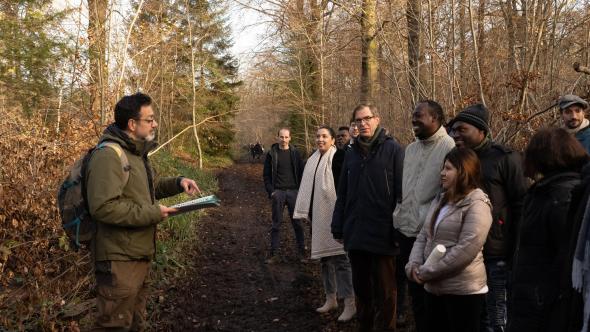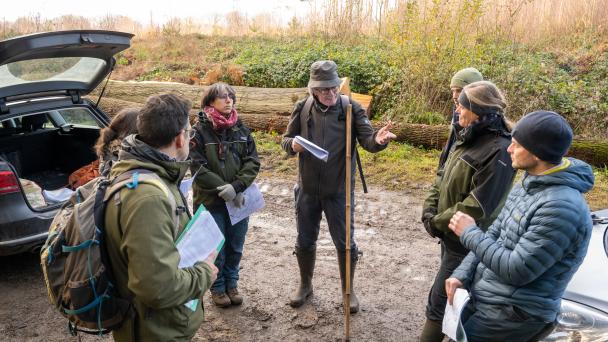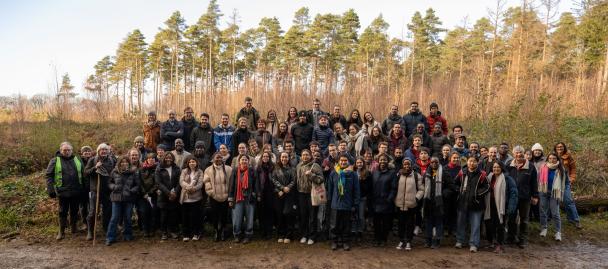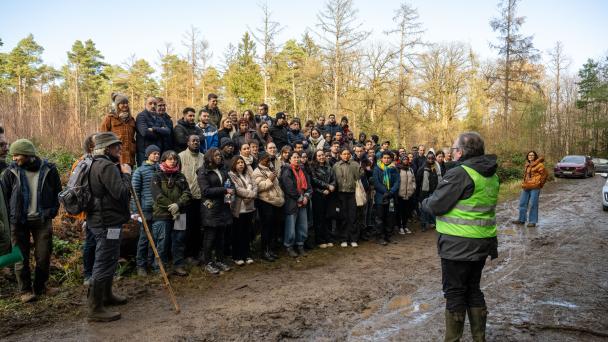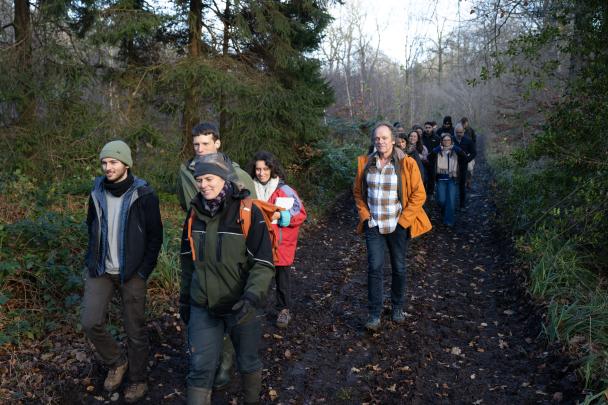Over the course of an afternoon, students, accompanied by teachers and experts, explored the challenges of deforestation and environmentally-friendly economic solutions.
Divided into four groups, the students tackled a variety of topics:
- Pedagogy on forests with Charles Debois, an expert who assessed the profitability of forest management on the Haugimont estate.
- Valorisation économique des forêts avec Gauthier Ligo, professeur en économie forestière à Gembloux Agro-Bio Tech et Simon Hauser, Gestionnaire forestier et éco-conseiller à l'UNamur
- Travaux ciblés et sylviculture avec Maude Vandenabeele, ingénieur forestière à Forêt.Nature
- Biodiversity with Christine Sanchez, head of continuous-canopy mixed silviculture training for the organization Forêt.Nature
Christine Sachez, forestry expert, shares, "I find it very interesting to have a group of economics students. On the one hand, to show them what forest management is, a rather distant field from their studies. Secondly, for my own experience. Indeed, the questions asked are very different from those of a group of forestry students. I'm learning a lot too. Maude Vandenabeele, completes: "I find it very interesting to show them the field. We need to make students aware of the fact that the forest is about ecology and people. This allows us to put ourselves in each other's shoes and understand each other's realities."
Romane, a student on her third bachelor's degree in economics and management, shares her experience: "As part of the Environmental Economics course, this type of activity allows us to move from theory to practice and not limit ourselves to numbers but to have a slightly more global vision of the thing".
Other Specialized Master's students in sustainable development management and economics add: "The forest visit was an enriching educational experience that gave me a better understanding of the complex dynamics of population, environmental sustainability and governance. It inspired me to become a stronger advocate for sustainable practices and policies that protect our natural heritage for future generations. In addition, the visit provided me with a tangible context for coursework, bridging the gap between theory and real-world application." Or, "It was important for me to find out how the forest is managed in a European country. This outing reminded me of many things about the environment, and I learned a lot of new things. It was also interesting to see in practice how to reconcile environmental sustainability with economics."
Through this immersion, the students understood that economics and nature are not incompatible. Following the example of Haugimont, they learned that investing in sustainable forest management can not only preserve ecosystems, but also generate long-term benefits.
By integrating approaches like Pro Silva's now, these future economists will help chart a path where profitability no longer comes at the expense of nature, but in harmony with it.
